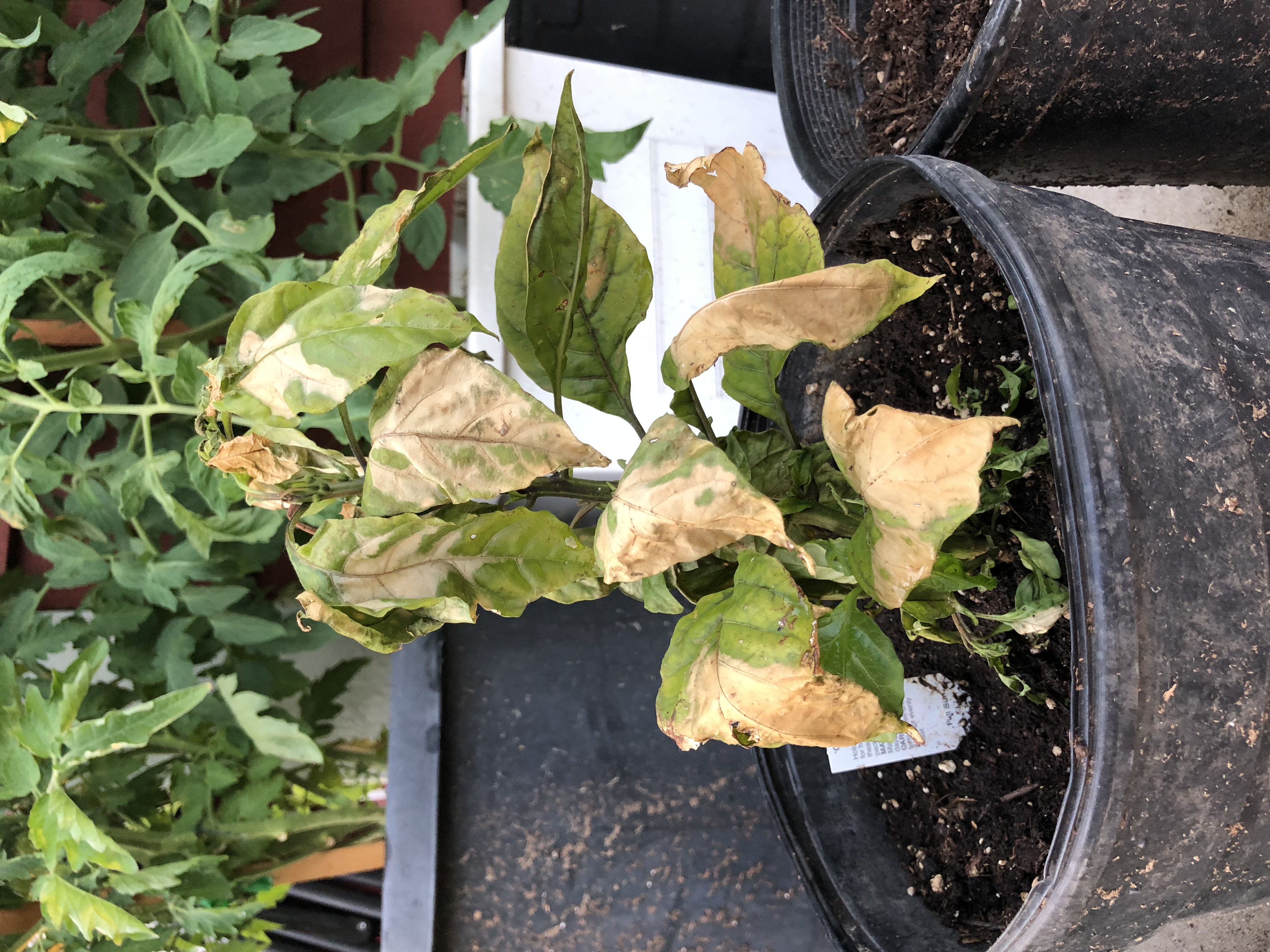Organic Vs. Synthetic Fertilizers: Which Is Best for Supporting Healthy Pepper Plants?
In the world of nurturing healthy pepper plants, the option in between synthetic and natural fertilizers stands as a pivotal decision with far-reaching ramifications. While both choices goal to offer crucial nutrients to sustain plant development, the subtleties of their effect on the soil, plant health and wellness, and the atmosphere stimulate a dispute that echoes throughout the horticulture neighborhood. Understanding the distinctive benefits and prospective mistakes of each fertilizer kind is critical for pepper farmers seeking to enhance their yields while maintaining a lasting and eco-conscious strategy.
Benefits of Organic Plant Foods
Organic plant foods offer an environmentally-friendly and lasting strategy to nourishing pepper plants, offering vital nutrients without using synthetic chemicals. These natural fertilizers are stemmed from natural resources such as garden compost, manure, bone dish, and seaweed, advertising dirt health and biodiversity. Unlike synthetic fertilizers, organic options launch nutrients gradually, making sure a balanced and consistent supply for pepper plants to flourish.
One significant advantage of natural plant foods is their capacity to boost dirt structure and water retention. By improving soil health, organic plant foods promote valuable microbial task, which helps in nutrient uptake by pepper plants. In addition, organic fertilizers lower the threat of chemical run-off, safeguarding water sources from pollution and guarding the setting.
Furthermore, organic fertilizers contribute to long-lasting soil fertility by advertising the growth of useful dirt organisms. These organisms assist break down raw material, releasing nutrients in a type that is quickly accessible to pepper plants. best fertilizers for peppers. By promoting a healthy and balanced soil community, organic fertilizers support sustainable pepper farming practices that benefit both plants and the environment
Drawbacks of Synthetic Plant Foods
Synthetic plant foods, in comparison to their natural counterparts, pose different downsides when utilized to nurture pepper plants, impacting both plant health and wellness and ecological sustainability. One significant drawback of synthetic fertilizers is their propensity to leach nutrients from the dirt rapidly.
Additionally, the overuse of synthetic plant foods can contribute to water contamination. Excess plant foods not taken in by plants can get rid of right into water bodies, causing eutrophication, where algae blossoms diminish oxygen levels in the water, hurting aquatic life. Synthetic fertilizers are commonly acquired from non-renewable sources, such as fossil fuels, adding to carbon discharges and ecological deterioration during their manufacturing.
Nutrient Absorption Comparison
When contrasting organic and artificial fertilizers in terms of nutrient absorption, organic fertilizers have the advantage of providing an extra balanced and slow-release resource of nutrients. Organic plant foods consist of a selection of macro and micronutrients that are not just useful for the plants however likewise advertise healthy soil microbial task, which assists in nutrient uptake.
Furthermore, organic fertilizers improve soil framework and water retention capacity, allowing pepper plants to accessibility nutrients extra efficiently. This better dirt top quality assists in root development, enabling better nutrient absorption. Artificial plant foods, although at first boosting plant development due to their high nutrient concentrations, might impede lasting nutrient absorption by degrading soil wellness over time.
Environmental Influence Factors To Consider

On the other hand, synthetic plant foods, although frequently even more quickly readily available and focused to plants, can have detrimental results on the atmosphere otherwise applied correctly (best fertilizers for peppers). Their production calls for high energy inputs, bring about greenhouse gas exhausts and adding to climate change. Additionally, the runoff of excess synthetic plant foods can contaminate water resources, leading to eutrophication and harming water communities.
Finest Plant Food Practices for Peppers
When feeding pepper plants, enhancing nutrient have a peek here uptake and decreasing environmental influence are key factors to consider. To attain this, it is vital to adhere to ideal plant food methods customized to the details needs of pepper plants. One vital practice is to perform a soil examination prior to applying any fertilizers. This examination can determine the pH degree of the dirt and determine any type of nutrient shortages, assisting you in picking the most ideal fertilizer solution.
One more vital technique is to feed pepper plants at the correct time. Generally, peppers benefit from receiving plant food at planting and after that once more when they begin to blossom. Over-fertilizing can bring about nutrient inequalities and hurt the plants, so it is vital to follow advised application rates.
Additionally, choosing a balanced fertilizer with an NPK ratio that suits pepper plants' requirements is fundamental. Organic fertilizers, such as garden compost or manure, can be excellent selections as they launch nutrients slowly and enhance dirt framework over time. However, synthetic fertilizers can supply a fast nutrient increase when needed. Eventually, incorporating synthetic and organic plant foods carefully can help support healthy pepper plants while minimizing environmental impact.
Final Thought

Organic plant foods provide a sustainable and environmentally-friendly approach to nourishing pepper plants, providing essential nutrients without the use of synthetic chemicals. Unlike synthetic fertilizers, organic options launch nutrients slowly, making certain a consistent and well balanced supply for pepper plants to thrive.
Synthetic fertilizers, in contrast to their organic equivalents, posture various downsides when utilized to nurture pepper plants, impacting both plant additional hints wellness and ecological sustainability. When contrasting artificial and organic fertilizers in terms of nutrient absorption, natural plant foods have the benefit of giving an extra well balanced and slow-release source of nutrients.Furthermore, organic fertilizers improve dirt structure and water retention capability, permitting pepper plants to gain access to nutrients a lot more effectively.
Comments on “Best Fertilizers for Peppers: A Comprehensive Guide to Increase Your Harvest”